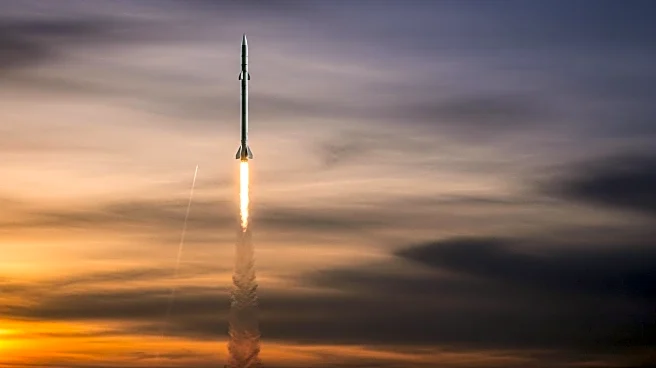What's Happening?
On October 25, 2023, the Israeli Defense Forces (IDF) successfully intercepted a missile launched from Yemen, which triggered sirens across central Israel. This incident is linked to the Iran-backed Houthi movement, which has been increasingly active in the region. The interception highlights the ongoing threats Israel faces from various militant groups. The missile launch is part of a broader pattern of escalating conflicts in the Middle East, particularly in Yemen, where the Houthis have been engaged in a civil war against a Saudi-led coalition since 2014. The Houthis have demonstrated advanced missile capabilities, posing a growing threat to Israeli security. The IDF's air defense systems, including the Iron Dome, were activated swiftly, successfully intercepting the missile before it could reach its target, averting potential damage or casualties.
Why It's Important?
The interception of the missile underscores the complex security challenges Israel faces in the region. The Houthis' actions reflect the shifting dynamics of regional power, particularly the influence of Iran, which supports the movement. This incident highlights the growing threat posed by non-state actors like the Houthis, who have increasingly targeted Israel as a show of support for Palestinian factions. The international community, including the U.S., has reacted with concern, emphasizing the need for de-escalation. The situation complicates the security landscape for Israel, as threats can emerge from various fronts simultaneously, necessitating robust defense and intelligence measures.
What's Next?
The IDF is expected to continue upgrading its defense systems to counteract evolving threats. Military experts suggest that Israel needs to invest in further intelligence and defense technologies to address the increasing capabilities of non-state actors like the Houthis. The Israeli government has reaffirmed its position on countering threats from both state and non-state actors, with Prime Minister Benjamin Netanyahu stating that Israel will not tolerate any aggression towards its borders. The situation may lead to increased diplomatic efforts to address the underlying regional tensions and prevent further escalation.
Beyond the Headlines
The missile interception not only highlights Israel's defense capabilities but also underscores the complex web of alliances and enmities in the Middle East. Iran's support for the Houthis is part of a broader strategy to extend its influence across the region, complicating the security landscape for Israel. The incident raises questions about the effectiveness of current security measures and the potential for future conflict, as missile technology becomes more accessible to various non-state actors.










